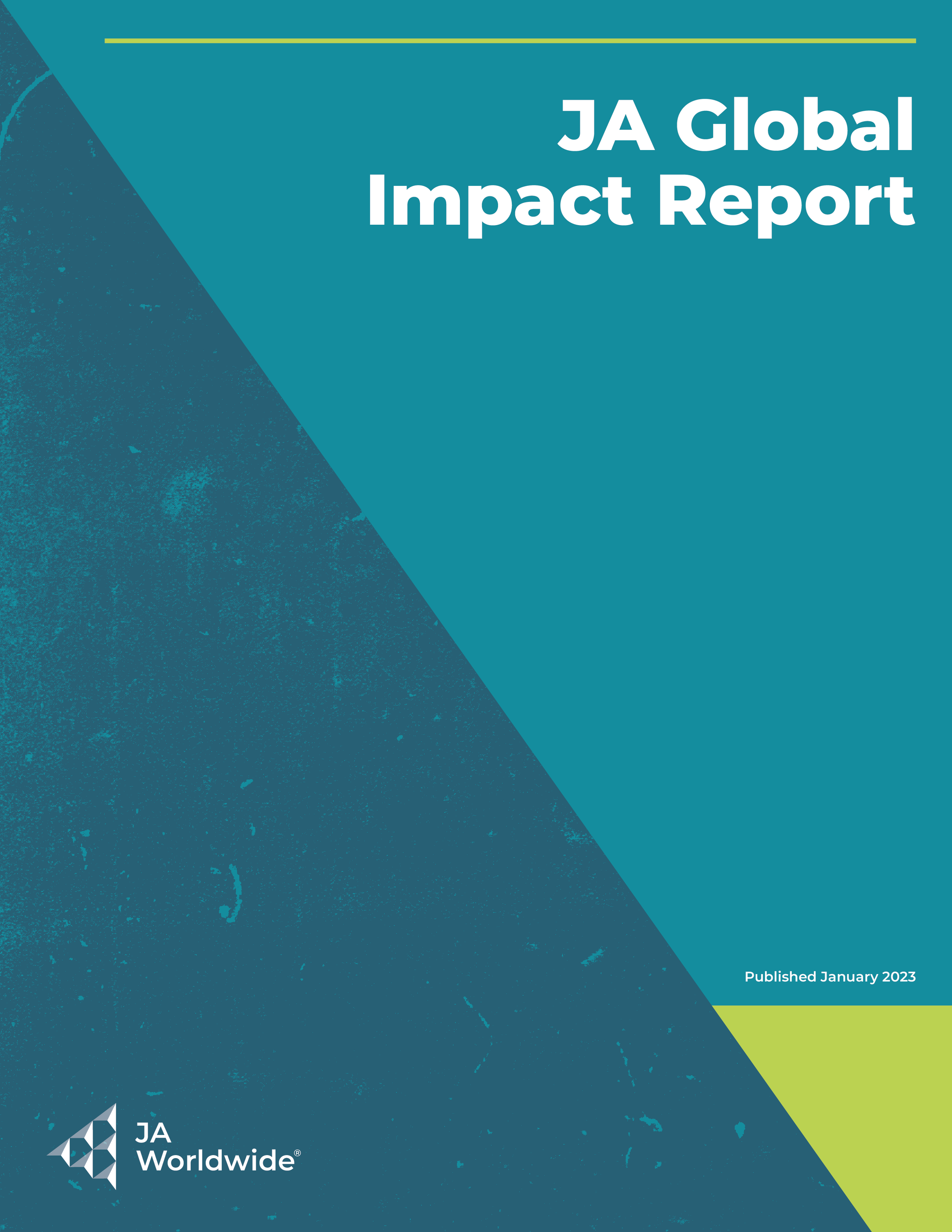The Impact Intelligence Toolkit is JA’s practical guide to understanding, measuring, and communicating the outcomes of our work. Built to support members across diverse contexts, it goes far beyond traditional impact measurement by providing a comprehensive, easy-to-use system for collecting data, analyzing results, capturing stories, and using evidence to strengthen programs and partnerships. Some sections—especially the longest one on quantitative research—are complex and dense, and may require focused study. Others are easier to navigate and put into practice immediately.
The toolkit walks you step-by-step through the core components of impact intelligence: foundational concepts in impact and theory of change; practical methods for quantitative and qualitative research; tools for cost analysis and operational insights; and clear guidance on data privacy, ethics, and protection. Whether you're designing a survey, interpreting data, conducting an alumni study, or capturing a compelling story, each section offers templates, examples, and explanations in plain language.
This draft version is being shared for review so that you can shape and refine the final resource before its full release in 2026. We also have a few updates to graphics and text to make, but wanted to share this with you as soon as possible Your feedback will help ensure that Impact Intelligence becomes not just a global framework, but a practical, everyday asset that strengthens decision-making and amplifies JA’s impact worldwide. Please complete the survey by January 23, 2026.
After you’ve reviewed the draft, complete the feedback form, below.



